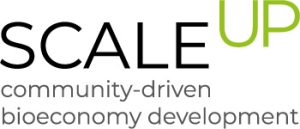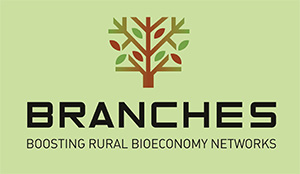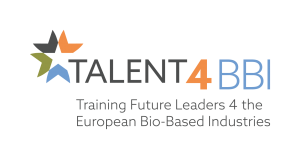SCALE-UP project
Project concluded
Concepts, tools and applications for community-driven bioeconomy development in European rural areas
The overall goal of SCALE-UP is to support regional multi-actor partnerships, consisting of private businesses, governments and policymakers, civil society organisations, and researchers in identifying and scaling-up innovative and sustainable bio-based value chains that build on regional resources.
Through its approach, SCALE-UP will adapt, implement and evaluate tools to help regional actors to overcome the apparent bottlenecks towards fully exploiting bioeconomy potentials in their region.
A four-phase methodology will:
i) establish existing knowledge and set the stage for further research, as well as create six regional platforms with local stakeholders;
ii) facilitate cross-regional transfer of knowledge and demand-driven capacity building, and provide support to multi-actor partnerships to carry out market assessments and business model designs;
iii) create a pan-European ‘Community of Practice’ to facilitate sharing good practices and lessons learned across European regions; and
iv) disseminate and exploit project results in collaboration with key stakeholders.
In addition to the focus on increasing capacity and knowledge on the bioeconomy among relevant actors in the regions, a key feature of SCALE-UP is the business development programme to be applied by the local communities.
With an emphasis on the principles of co-creation, transparency and open innovation, the project will provide advisory support to innovators and regional stakeholders to assess market conditions, elaborate business plans and identify compatible funding sources for 12 bio-based solutions.
Contacts:
Holger Gerdes: holger.gerdes@ecologic.eu
Zoritza Kiresiewa: zoritza.kiresiewa@ecologic.eu
website: http://scaleup-bioeconomy.eu/











